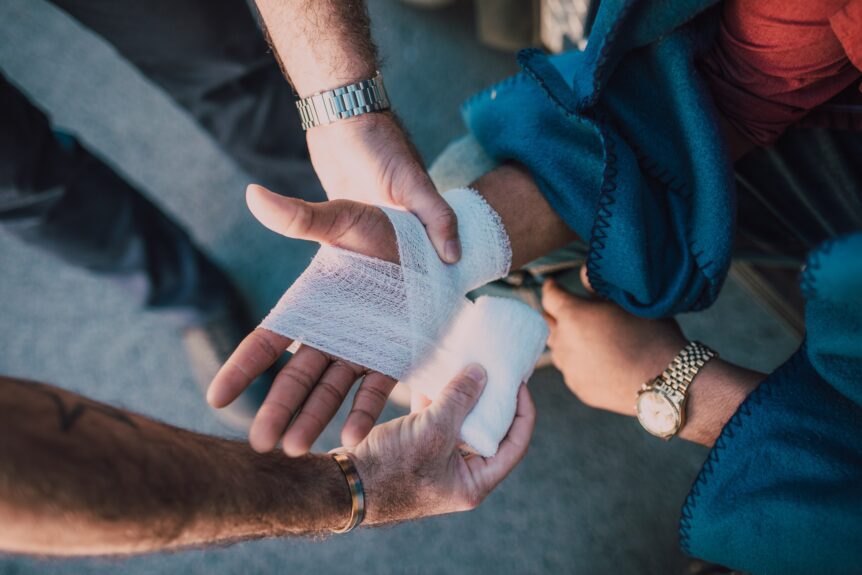Basic first aid is an essential skill for anyone who wants to be prepared for emergencies and accidents. With the right knowledge and training, it is possible to provide life-saving care to individuals who are injured or ill, and to help them recover more quickly and comfortably. We will explore some of the key principles and techniques of basic first aid, and provide some tips and advice for those who want to learn more about this important skill.
One of the most important principles of first aid is to assess the situation and prioritize care. In a medical emergency, it is essential to quickly determine what is wrong and what needs to be done to help the person. This may include checking for signs of life, such as breathing, pulse, and responsiveness, and providing immediate care for life-threatening conditions such as severe bleeding, choking, or cardiac arrest. It is also important to consider the safety of the first aid provider and any bystanders, and to take steps to protect them from potential hazards.
Another key aspect of first aid is to provide appropriate care for common injuries and illnesses. This may include basic techniques such as cleaning and dressing wounds, splinting broken bones, and providing pain relief. It is also important to know how to recognize and manage common medical conditions such as heat stroke, hypothermia, and allergic reactions. In some cases, it may be necessary to call for emergency medical assistance, and to provide instructions and support to the person until help arrives.
First aid training is widely available, and can be an essential investment for anyone who wants to be prepared for medical emergencies. Basic first aid courses typically cover the key principles and techniques of first aid, and provide hands-on practice and feedback to help participants develop their skills. Some organizations, such as the Red Cross, offer certification programs that provide evidence of first aid training, and that may be required for certain jobs or activities. If unable to presently attend a hands-on course, even learning from books is better than not knowing anything at all.
In conclusion, basic first aid is an essential skill that can help individuals provide life-saving care to those who are injured or ill. With the right training and knowledge, it is possible to assess and manage common medical emergencies, and to provide comfort and support to those in need. Whether you are a parent, a student, a traveler, or a community member, learning basic first aid can be a valuable investment in your safety and well-being.

